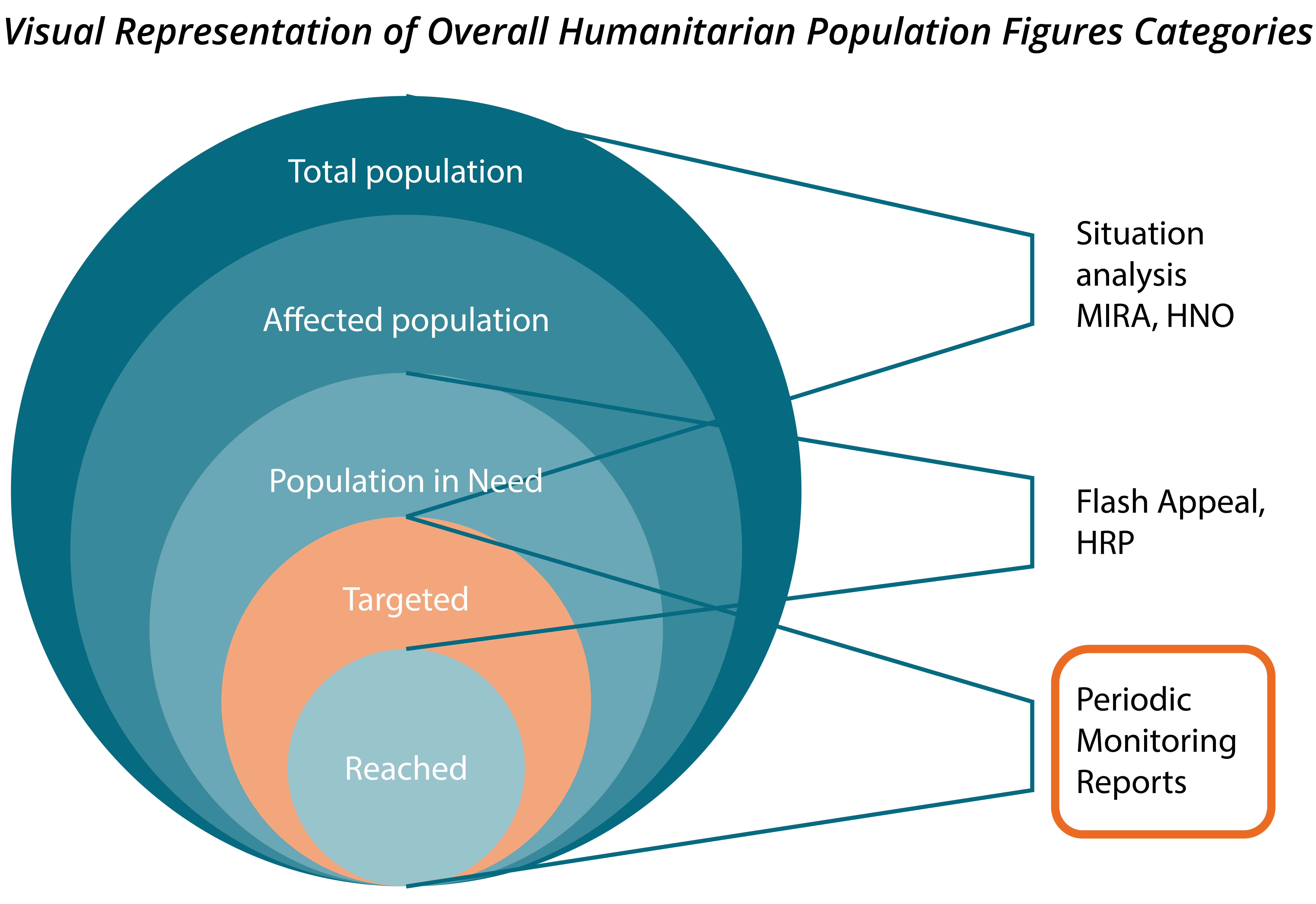Response monitoring helps to establish if the humanitarian community has done what it committed to do in the HRP. The main purpose is to:
- Provide the RC/HC, HCT and Clusters with an evidence base for making decisions about what actions should be taken to redress shortcomings, fill gaps and/or adjust the HRP (see midyear reviews under 9.3), contributing to a more effective and efficient humanitarian response, in the short and long-term.
- Help improve accountability of the humanitarian community for the achievement of results under the HRP towards affected populations, local governments, donors, and the general public.

As part of the HPC steps (see Annex II), the ICCG and the FSC will (in coordination with partners) prepare, finalise and implement a monitoring plan/framework. Typically, this takes place between January and February. The diagram illustrates the focus of the FSC Periodic Monitoring Reports.
What is the role of the FSC Coordinator? See 5.15 and 5.15.1 for details on the role of the Coordinator in ensuring adequate FSC response monitoring – both for internal purposes and in accordance with HPC monitoring requirements. (For FSC coordination performance monitoring or CCPM, see 5.9).
Resources:
- See overview of HPC monitoring requirements and guidance (OCHA, 2021). FSC response monitoring is a key part of the HPC, see p. 21 in the HPC 2023 Step by Step Guide (updated yearly - Coordinators should check for updates). Also see the HRP Monitoring Plan template (OCHA, 2021), which offers a structure for a country HRP monitoring plan, with narrative, timeline and monitoring framework.
- The Humanitarian Response Monitoring Guidance (IASC, 2016) sets the basis for a common approach to response monitoring - its key messages are still relevant although some elements are outdated.
- IASC Reference Module for the Implementation of the Humanitarian Programme Cycle (IASC, 2015), p. 10.
- See also 5.15 for resources.